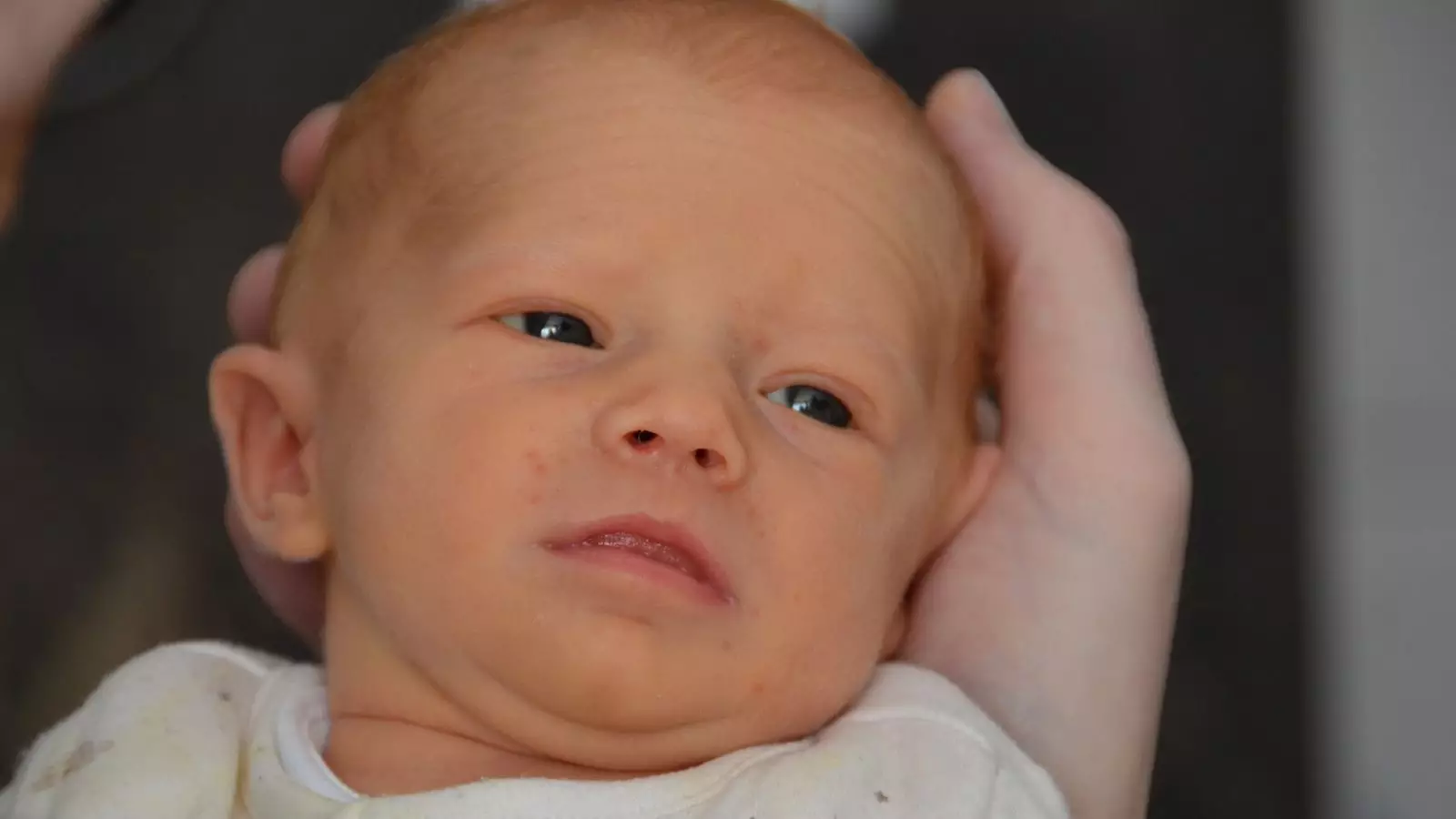In a remarkable testament to medical ingenuity and the unbreakable bonds of family, a historic first has unfolded in the UK: a baby girl, Grace Davidson’s daughter, has been born from a womb that was transplanted from her sister. This milestone not only revolutionizes the possibilities of parenthood for women facing severe reproductive challenges, but it also amplifies the emotional resonance of altruism within familial ties. A story like Grace’s—one intricately woven with hope and human resilience—challenges the very boundaries of our understanding of fertility and what it truly means to become a parent.
The Personal Touch of Familial Bonds
Grace Davidson, a 36-year-old NHS dietitian, has emerged as a symbol of courage for many women grappling with rare conditions such as Mayer-Rokitansky-Kuster-Hauser (MRKH) syndrome, which impacts approximately 1 in every 5,000 women. Born into a reality where a standard possibility of motherhood was stripped away by an underdeveloped womb, her family transformed despair into hope by opting for a womb transplant, donating the womb from her own sister, Amy Purdie. This act exemplifies unconditional love and commitment that transcends societal norms and medical boundaries.
The birth of baby Amy Isabel—named, fittingly, after the aunt whose sacrifice made it possible—underscores the intertwined nature of medical interventions and personal relationships in the journey to parenthood. It is a vivid reminder that behind every scientific breakthrough lies a story of human connection, reinforcing the notion that medicine should not only heal but also honor the intrinsic bonds that unite us.
A Journey of Emotional Turmoil and Triumph
For Grace and her husband Angus, the road to parenthood was laced with emotional hardships, filled with a longing that echoed deeply as they faced fertility hurdles. Every failed attempt at conceiving magnified their desire to complete their family, heightening the emotional stakes surrounding this monumental birth. Their journey, like that of many couples, epitomizes the extremes of human emotion: hope juxtaposed with despair.
When Grace first held baby Amy in her arms—a moment fraught with disbelief and overflowed with joy—the realization of her hard-fought battle came to fruition. It is an emotional revelation that goes beyond simple happiness; it is a testament to the capacity of dreams to manifest into reality through sheer determination and support from loved ones. Angus’s description of their experience—overwhelmed with “elation”—perfectly encapsulates the cathartic release of their pent-up frustrations, transforming years of waiting into a single moment of profound connection.
Shattering Stigmas in Reproductive Challenges
Despite this captivating narrative, the birth of baby Amy Isabel also shines a light on the broader societal implications of womb transplants and reproductive technology. The stigma surrounding fertility issues often leaves women feeling isolated, but Grace Davidson’s story invites a shift in discourse. It encourages society to take a leap forward in compassion and understanding toward individuals who face reproductive challenges.
Moreover, with medical technology rapidly advancing, the potential for womb transplants to redefine the landscape of fertility care should incite conversations about access and equity in reproductive health. The delicate balance of ethics amidst this scientific innovation raises questions about who should benefit from these advancements, and how healthcare systems can ensure that every woman has the opportunity to explore such possibilities.
The Role of Medical Professionals in the New Frontier
Professors Richard Smith and Isabel Quiroga, who executed this groundbreaking procedure, represent the vanguard of a increasingly complex field where surgery and compassion intersect. Their reflections on the emotional labor and anticipation tied to the procedure reaffirms that beyond their medical prowess lies a deep commitment to the families they serve. The phrase “worth every moment” isn’t merely a cliché; it serves as an acknowledgment of the powerful human experiences made possible through their surgical contributions.
As we reflect on this inspiring event, it is essential to recognize the intricate dance between science, emotion, and societal attitudes toward reproduction. Amidst the scientific advancements, we must remain vigilant to ensure these achievements foster a more inclusive and understanding environment for all who aspire to become parents. The birth of baby Amy Isabel, thus, signifies more than just a personal victory; it heralds a transformative era in reproductive health, kindling hopes for countless women around the world.


Leave a Reply